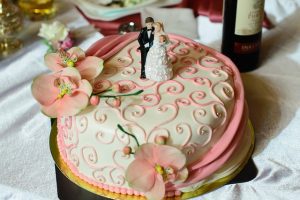Posted in Uncategorized

In the end the Court did what it often does: write a narrow decision based on the laws and facts of the case, avoiding major, divisive, social issues.
The couple filed a complaint with the Colorado Civil Rights Commission, the state agency charged with enforcing state anti-discrimination laws. The agency found in the couple’s favor, which was upheld in state court appeals. The bake shop appealed to the Supreme Court which earlier this year reversed the decision, stating the Commission should’ve taken into consideration the baker’s rights and religious concerns, which it failed to do initially. Officially the issue is back with the Commission, to decide the case once again.
What lessons are there for California businesses in light of this case?
- If an employee states he or she doesn’t want to work with a homosexual colleague based on religious beliefs: The employer should take the request seriously and try to be neutral when making a decision. Under state and federal law an employer and employee have to engage in an interactive process (discuss the issue openly and seriously) to see if the employee can be reasonably accommodated. If you fail to agree to an accommodation you risk being sued for discrimination based on the employee’s religious beliefs or if you accommodate the request and the gay employee suffers as a result, you could be sued for discrimination based on sexual orientation bias. What’s the right decision is based on the facts. If an accommodation presents an undue hardship (it seriously disrupts the business) you may have a valid defense to the religious discrimination claim.
- Employee claims his or her free speech rights are violated if they need to perform work which endorses a practice that violates their religious beliefs: The Supreme Court didn’t decide whether or not creating a cake was speech protected by the First Amendment. Unless you’re a public employer generally First Amendment speech protections don’t apply to the workplace. If the protest is based on the employee’s religious beliefs, like the first scenario, you’d need to see if the person can be reasonably accommodated without causing an undue hardship to your business.
- A business refuses to supply a good or service to a homosexual customer based on the owner’s religious beliefs: State law prohibits denial of public accommodations (like the retail sale of products) based on the customer’s sexual orientation. Because the Supreme Court created a narrow decision and didn’t address the broader issues involved, we have no guidance from the country’s highest court whether or not this situation would be illegal or not.
If you’re in a situation where you think your religious beliefs are being compromised by the law or have employees asking for changes in their duties and obligations because of their religious beliefs, contact our office so we can go over the facts, the laws applicable to the situation and how you can protect your company’s rights and interests.
